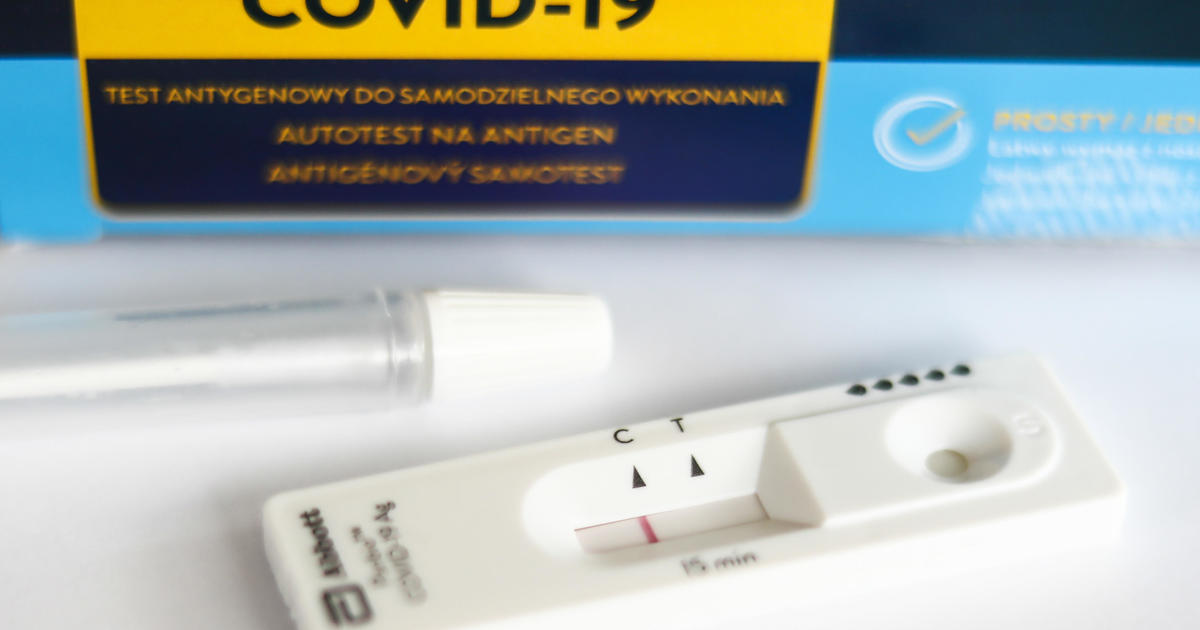'It Will Be Here, It's Just A Matter Of Time': Colorado Doctor Predicts Omicron Variant Will Come To Colorado, Explains What We Have Learned So Far
DENVER (CBS4) – While experts worldwide continue to study the potential impact of the omicron variant, the first U.S. case was detected Wednesday in California.
The Centers for Disease Control and Prevention, along with health authorities in California, confirmed the case was detected in a traveler who returned from South Africa on Nov. 22.
So far, no omicron cases have been detected in Colorado.
Many of you have a lot of questions about the new variant, so CBS4 brought them to a health expert who is following things closely. Answers were provided by Dr. Reginald Washington, Chief Medical Officer from Presbyterian St. Luke's and Rocky Mountain Hospital for Children.
Q: How likely is it that we'll see the omicron variant in Colorado?
A: Dr. Washington
"I think it's 100%. I think all of the experts, the epidemiologists feel very strongly that it will be here. it's just a matter of time."
Q: What is the main concern with this variant?
A: Dr. Washington
"It had significant mutations. We're not quite sure of all the ramifications of those mutations just yet. We know that based on what we know from South Africa, it's more infective, meaning you can infect more people than you can the delta variant. However, what we don't know, just because we don't have enough experience with it yet worldwide, is it going to make patients sicker? That's one key question. the other key question is how are the vaccines going to protect one against that variant? We just don't know those answers yet. It just hasn't been around long enough."
Q: How transmissible is omicron?
A: Dr. Washington
"The preliminary data suggests that it is very transmissible, even more so than the delta variant. on the other hand, we don't know if that's going to translate to being sicker. we just don't know yet.
Q: What do we know about the severity of symptoms?
A: Dr. Washington
"The preliminary data, and it's very preliminary, suggests that you may not be as sick as you are with the delta variant, but that's very, very preliminary, so I don't know if we can even say that."
Q: Do we know how effective current vaccines are against this variant?
A: Dr. Washington
"Those studies have only been underway a couple of days so the results are not in yet, but I think within a week or ten days we'll have some information on how effective the current vaccines are against the new variant."
Q: If it is more transmissible or the symptoms are more severe, what does that mean for us?
"That means we'll do the same thing we've done before. We'll kind of hunker down, we'll probably have to encourage people to continue to get vaccines, continue to be self-aware of their symptoms, avoid people if you know you're not feeling well, and if you're immunocompromised, isolate yourself and protect yourself."
Q: Should this variant change how we handle the pandemic?
A: Dr. Washington
"I don't think so. I think everybody is COVID weary and getting tired of COVID, COVID, COVID, but COVID doesn't care. COVID is still here and COVID's main goal is to infect as many people as possible."
Q: Should this variant be the focus right now or should we keep our attention on delta?
A: Dr. Washington
"I think our focus should be on COVID, regardless of what variety it is. Continue to get vaccinations, continue to avoid people if you're sick, do not expose people unnecessarily if you're not feeling well because it could be COVID."
Q: Could Omicron become the dominant variant and what would it take for that to happen?
A: Dr. Washington
"I think it will take several months, but if it is as infectious as delta was when delta first came out and humans weren't exposed to it, it could be quite a problem. Again, we don't know that yet, but will know in the next several weeks."
Q: Can we expect more mutations?
A: Dr. Washington
"This is not the last mutation. People don't realize there have been several other mutations since the delta mutation, but they just haven't turned out to be important."




